Newsletter – April 2023
Spotlight on… changes to Qualifying Experience
Whether it is a recent experience still at the front of your mind, or takes a bit more dredging through the memory banks to find, I’m sure you can all remember the moment when you qualified as a Costs Lawyer! From that point you were able to shift the focus from studying, exams and supervision to on-going professional development and working independently or as a member of a team.
New regulatory arrangements for the Costs Lawyer Qualification, and in particular new Training Rules in force from February this year, mean there have been some significant changes to the qualification framework. Even if your trainee days are far behind you it is important you are aware of the new framework (especially if you currently or may in future act as a supervisor to a trainee Costs Lawyer), as it has implications for how people enter the profession with immediate effect.
The purpose of the changes to the qualification framework is to:
- Align the training requirements with the expectations for newly qualified Costs Lawyers in the Competency Statement published in 2022.
- Ensure prospective Costs Lawyers receive high quality, relevant training and assessment.
- Allow ACL Training to explore new delivery models for the qualification, attracting the next generation of Costs Lawyers into the profession.
- Provide assurance to the CLSB that every graduate is ready to exercise the practising rights enjoyed by authorised Costs Lawyers.
This article explores the changes to the work experience, or Qualifying Experience, requirements for trainee Costs Lawyers arising from the new Rules.
The purpose of Qualifying Experience is to practise the skills gained during training in the workplace, and to ensure that all qualifying Costs Lawyers have the support, mentorship and oversight they need to meet the standards in the Competency Statement in a day-to-day working environment.
The main changes to Qualifying Experience therefore are:
- Reducing the period of Qualifying Experience from three years to two years (full-time equivalent), to better align with other parts of the legal sector.
- Excluding any work experience obtained more than 12 months prior to starting the qualification, to ensure the skills learned during the Costs Lawyer Qualification can be applied in the workplace.
- Allowing Costs Lawyers who have passed the qualification to be regulated and authorised prior to completion of their Qualifying Experience, to recognise that completion of Qualifying Experience is now a regulatory, rather than a training issue. In such cases individuals would be issued with a conditional practising certificate requiring that they continue to practice under supervision until Qualifying Experience is completed.
- Transferring responsibility for determining completion of Qualifying Experience from ACLT to the CLSB, to reflect that Qualifying Experience is now about practising the required skills, and no longer part of the assessment of competence of those skills. This also facilitates the granting of conditional practising certificates.
These changes will apply to all students completing the course from 2024. Transition arrangements will allow students who complete the course during 2023 to have their Qualifying Experience assessed under the old Training Rules (in practice by an ACLT Supervised Practice viva) or by the new CLSB procedures.
The new procedures require individuals to submit evidence of Qualifying Experience to CLSB on completion. If they have completed Qualifying Experience prior to applying for their first practising certificate the evidence will be submitted at this point. If they have a conditional practising certificate they can apply to have the condition removed by submitting the evidence on completion of Qualifying Experience.
The evidence required for CLSB to determine completion of Qualifying Experience is:
- A Qualifying Experience Record providing examples of how each of the skills in the Competency Statement has been practised during the period of Qualifying Experience.
- A Qualified Person Statement from each qualified person who has supervised any part of the Qualifying Experience.
If you are supervising a trainee Costs Lawyer, please do encourage them to populate their Qualifying Experience Record with relevant examples throughout the course of their Qualifying Experience rather than leaving it all to the end, and, if they change their supervisor for any reason during Qualifying Experience, ensure you complete the Qualified Person Statement at the end of your supervision period.
Our webpage How to become a Costs Lawyer has all the resources and information you need about the new requirements for Qualifying Experience. These include an extensive set of FAQs, templates of the documents required, and a worked example of a Qualifying Experience Record entry.
We are grateful to everyone who responded to our consultation on the regulatory arrangements for the Costs Lawyer Qualification last year, directly to the CLSB or through the ACL’s membership survey, and are excited to be implementing changes which will have such a positive impact on the profession.
We are aware that it may take time for everyone to become familiar with the changes, especially the practical changes, and are ready to provide you, your trainees and prospective trainees with all the necessary support and guidance during the implementation period.
I will be at the ACL conference in Manchester on 21 April to speak, alongside ACLT, about this aspect of the new qualification framework and answer your questions. I very much look forward to meeting many of you then.
Jacqui Connelly, Operations Director, CLSB
